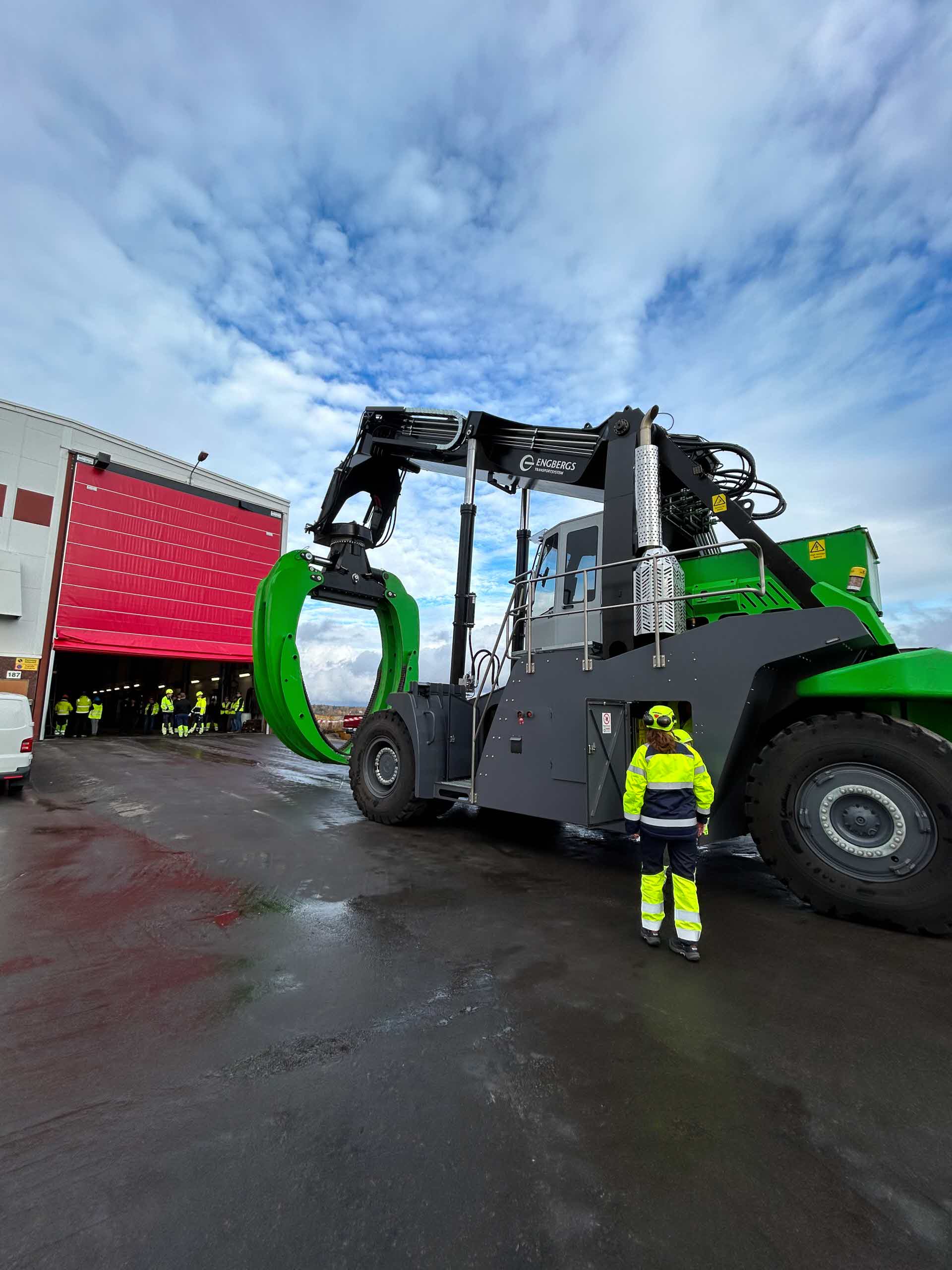
Almost a century of pulp innovation, bodes well for the future
- News
- Nyheter/Artiklar ämnen
- Pulp
For nearly a century, we have harnessed the power from forests in the northen Sweden to produce premium pulp. In fact, the industrial activity at Ortviken began as early as the middle of the 19th century, and in 1868 a sawmill was established at Östrand.

Industrial magnate Ivar Kreuger (to the left) flew in over Östrand in 1929 and then decided to build a sulfate factory on the site.
In 1909, a sulphite mill was erected at Ortviken, and in 1929 financier Ivar Kreuger decided to build a kraft mill at Östrand immediately after forming SCA (Svenska Cellulosa Aktiebolaget). In 1932, pulp production began. Four years later, the kraft pulp mill was expanded, increasing capacity to 140,000 tons per year, making it Europe’s largest.
In 1945, bleaching of kraft pulp was introduced at Östrand, accompanied by the construction of a chlorine alkaline plant to produce bleaching chemicals. A year later, production of kraft pulp made from birch began. During the 20th century, Ortviken developed into a modern industry, and in 1958 two paper machines were put into operation. At its peak, the factory produced 900,000 tons of publication paper.
In 1979, Östrand underwent a total technical renewal, including new bark and chip handling, new fiber lines, and new chemical recycling and recovery boilers, as well as bleach plant upgrades. Additionally, a new closed-loop bleach plant was acquired, which bleaches pulp completely without chlorine chemicals, making it 100 percent chlorine-free. New opportunities and technical capabilities led to the creation of new products, such as Airlaid, a product with extremely good absorption properties, used in sanitary towels among others. The development of this unique absorption capability enabled SCA to launch Libresse just before the turn of the millennium. Around the same time, Östrand receives FSC™ Forest Stewardship Council chain-of-custody certification.
In 2002, Östrand’s hardwood pulp era ended after 56 years. Production now fully concentrated on softwood kraft pulp, and it was gradually developed and renewed with a new wastewater treatment plant, a new recovery boiler, a new steam turbine, as well as a lime kiln and steam boiler that used pellets as fuel. In 2017, the SCA Group was divided into two listed companies, SCA, a forest products company, and the hygiene company Essity. Today, SCA's operations include forest, pulp, wood, packaging paper, renewable energy and logistics.
Project Helios (the project name for the modernization of Östrand pulp mill) was initiated 2014 and completed after four years, marking a new era of modernization. And in 2018, we inaugurated a new production line that expanded our kraft pulp production to over 900,000 tons annually. The state-of-the-art NBSK facility now includes a new cleaning shop, bark boiler, fiber line, and advanced bleaching options for both ECF and TCF bleached pulp.
Ortviken, once one of the world's largest facilities for publication paper production, experienced a gradual decline in demand. In February 2021, paper production ceased. SCA then launched a project to transfer CTMP production from Östrand to Ortviken, investing in a new facility and tripling its capacity to 300,000 tons. The decision was driven by the burgeoning global CTMP market, and of course, SCA’s extensive experience and proficiency in mechanical pulp. The Ortviken industrial site is the perfect location for the new CTMP facility. Modern equipment from the closed paper production could be reused, and with a new investment of 1.45 billion SEK, the new factory was inaugurated on May 16, 2023.
Given our track record, it’s safe to say that pulp is central to SCA’s strategy, supported by the largest private forest holding in Europe and our state-of-the-art pulp mills for both NBSK and CTMP. Add to that, our high level of self-sufficiency, which extends beyond wood to include green energy and logistics. This ensures reliable delivery and reduces supply chain risks during turbulent times, making SCA a stable, long-term supplier you can count on—today, tomorrow, and into the future.
SCA Pulp in everyday life. Worldwide!
For nearly a century, we have harnessed the power of our Nordic forests to produce premium pulp for a variety of products worldwide.


